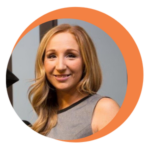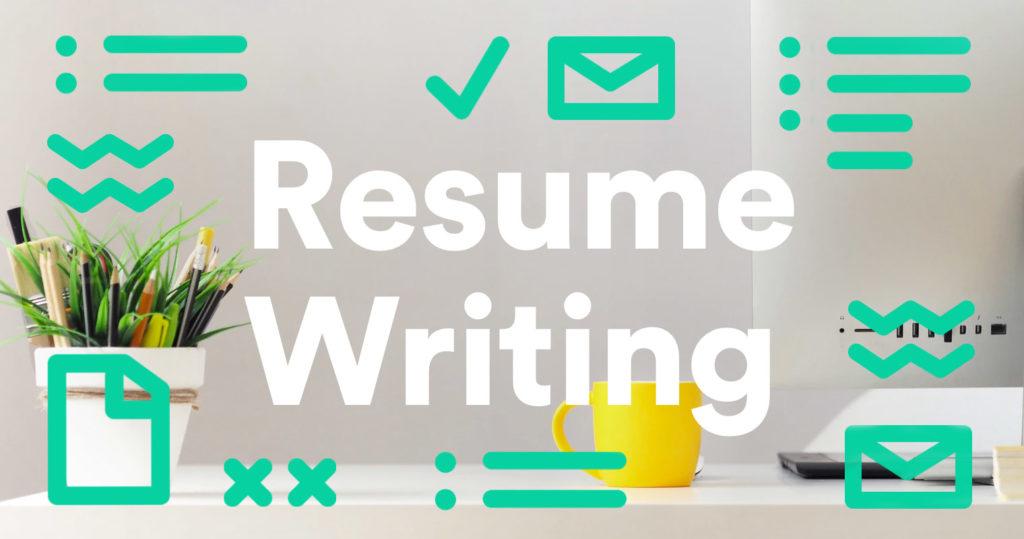So, you’re officially ready to start applying for jobs! Congratulations, that’s a great place to be! You’ve made the decision that you are ready for a change, or perhaps a fresh start, or maybe your first job, and you know exactly what you want to apply for. In your mind, you’ve envisioned the perfect position at the perfect organization, and you are ready to go and get it! But are you? The first question I would ask before you begin applying: When was the last time you refreshed and updated your resume? Do you even have a resume? You’re resume, like it or not, is just one method of how an employer formulates their first impression of you, and you want it to be the absolute best representation of you as it can possibly be. First impressions can leave an employer excited and wanting to learn more about you, or it can turn them off and leave your resume in the “do not contact” pile. Even the most experienced professionals at the executive level need to edit and update their resumes every so often.
Writing a resume for a 2022 job search can be overwhelming, frustrating, and well, stressful. We’ve all been through a lot in the past two years! But don’t worry—I can help you. Keep in mind, if you ask 10 different professionals for their expert advice on how to write resumes, you could very well get 10 different answers, and that’s okay! There are many right ways to do a resume. The tips listed below are some of the best ways to organize and prepare a resume in 2022 based on my experience in the field. The information here is practical and will deliver the results you are looking for if you take the time to create a document that is an accurate reflection of you and your skillset. Check out my five resume tips for job searching in 2022.
Resume Writing Tip #1: Do your homework
Before you begin writing your resume, you need to spend some time gathering the information you’ll need to create a truly fantastic document. When you come to table prepared, it will be much easier to enter the information into the format of your choosing. My advice would be to create a running document in Word, or on a piece of paper if you prefer, to jot down as much as possible before beginning to enter it into a resume format.
What is my educational background?

This question may be easy for some, but lengthy for others. If you attended more than one college, put it on your list, even if you didn’t graduate. If you earned credits there, and the coursework is relevant to your industry, it may be worth including. When you are making your list, try your best to include the courses that you took at each place. Again, you will not include all of them on your resume, but even having a few, especially if you have little to no experience, can help get your resume get through the applicant tracking systems (ATS). For example, if you are a health sciences student (Medical Assistant, Nursing, etc.) with no patient experience, you might want to include “Clinical Procedures” on your resume as a course you took and passed. When making this list, think about any accomplishments or recognitions you may have received. Things like perfect attendance, dean’s list, scholarship awards, etc. could be helpful to include. For my recent college graduates, I would also recommend that you include any GPA that is a 3.0 or higher. Any GPA that is lower than a 3.0 isn’t really that impressive (sorry!)
Side note – once you have graduated high school and enrolled in college, there is no need to include your high school on your resume. For high school students and soon to be high school graduates, this obviously does not apply to you, but as you grow and progress in your careers, you will find it’s not needed should you choose to pursue a college education.
Where have you worked?
This question may be easy for those who are new to job seeking, perhaps you’ve never had a job! I’ll come back to you folks in a minute. For individuals that have had a job or two, make a complete list of all the jobs you’ve ever had. Not just the companies. You’ll need to recall your job title, your start date and end date, as well as the city and state where this job took place. Ideally, you should try and go back about 10 years, but for this exercise go back as far as you can. You may not include every job on your resume, but at least you’ll have the information handy. For those who have never worked before, try thinking of places you have volunteered or completed internships with, even if it was for a short period of time. The employer wants to see something on your resume that demonstrates your interest in the field and any experience is better than none.
What did I do? What did I accomplish?
Once you have your list of places that you’ve worked, begin thinking of tasks (outside of the job description) that you did while you were employed. My recommendation would be to have your former (or current) job description handy but try and build upon it by including tasks that you did that were above and beyond your job description. Did you help increase revenue by a certain percentage? Did you create and implement a new process to improve customer satisfaction? Employers LOVE to see numbers and data on a resume, so think hard about what you did and if there is something that you could include to help set you apart.
What am I good at?
 When I write resumes, I like to have a section dedicated to areas of expertise. Are you bilingual? Trilingual? Can you navigate Microsoft Outlook without assistance? Are you an Excel wizard that creates and organizes spreadsheets and data in your sleep? When making your list of your areas of expertise, it is essential to be able to tie it back to the type of jobs you will be applying for. Again, if you are applying for roles in healthcare, listing things such as knowledge of medical terminology and anatomy and physiology may be appropriate. If you are going into business management, you may want to include things such as customer relations or budgeting. If you are looking at a human resources role, you would include items such as recruitment and retention or staffing initiatives. You would only want to include things that you are actually experienced in. If you are having trouble with this step, research some jobs that you would be interested in applying for and analyze the descriptions. Typically, you will find a section that lists preferred and desired qualifications. Start there. Also, if there are any awards or recognitions you have received, write them on your list. All of this will be helpful when it comes time to prepare your resume.
When I write resumes, I like to have a section dedicated to areas of expertise. Are you bilingual? Trilingual? Can you navigate Microsoft Outlook without assistance? Are you an Excel wizard that creates and organizes spreadsheets and data in your sleep? When making your list of your areas of expertise, it is essential to be able to tie it back to the type of jobs you will be applying for. Again, if you are applying for roles in healthcare, listing things such as knowledge of medical terminology and anatomy and physiology may be appropriate. If you are going into business management, you may want to include things such as customer relations or budgeting. If you are looking at a human resources role, you would include items such as recruitment and retention or staffing initiatives. You would only want to include things that you are actually experienced in. If you are having trouble with this step, research some jobs that you would be interested in applying for and analyze the descriptions. Typically, you will find a section that lists preferred and desired qualifications. Start there. Also, if there are any awards or recognitions you have received, write them on your list. All of this will be helpful when it comes time to prepare your resume.
Resume Writing Tip #2: Keep the format simple
Now that you have a complete list of your educational and professional experience, you are ready to begin organizing it into the appropriate format. Believe it or not, there are different styles of resumes. The three most popular (or frequently used) styles are reverse chronological, functional, and combination. Reverse chronological organizes your credentials by starting with your most recent experience and working backwards. A functional resume focuses on skills and strengths important to the employer and a combination format blends the first two formats together. There are other formats to explore as well, and not every format is right for each person. Each format has its own unique advantages and disadvantages. Make sure that you choose the format that will best organize and highlight your skills and experience.
Avoid Templates
In my experience, the best way to prepare a resume that will make it through the applicant tracking systems (ATS), as well as be read by various managers using different software and technologies, is using Microsoft Word. Microsoft will offer you tons of resume templates, and some of them are very well done. However, many of them when put to the test would never made it through ATS systems. This is because they have too much formatting. While you want your resume to look professional, you want to avoid things like borders, tables, too many lines, etc. To keep things simple, and ATS scans or screens an incoming resume for a variety of items. If the document has anything on it that hinders the software’s ability to read the document, it does not make it to the hands of the hiring manager or recruiter. If you really struggle working with Microsoft Word and feel that you must use a template, choose the simplest one you can find. Side note – templates are also VERY hard to edit and manipulate. When you are ready to add a job or move something around, the template makes it difficult to do so. If your resume is built in a blank Word document, you have much more control over how to organize and add content to it.
Avoid Flashy Fonts
 An employer or hiring manager has a job to fill. Having this vacancy is costing them time and money, and most likely impacting productivity in a negative way. They don’t care if your font looks fancy or is in cursive. In fact, they prefer it NOT be hard to read. Going back to ATS systems (I’m telling you; these are the things you need to beat in 2022), they don’t always read and interpret intricate fonts well. Or at all. Complicated or overly detailed fonts are frequently turned into blank boxes on applications or even transform into illegible characters. Keep your font to a Calibri, Arial, Helvetica, Cambria, Georgia, Tahoma, and of course, Times New Roman. When choosing a font size, keep it between 10 and 12.
An employer or hiring manager has a job to fill. Having this vacancy is costing them time and money, and most likely impacting productivity in a negative way. They don’t care if your font looks fancy or is in cursive. In fact, they prefer it NOT be hard to read. Going back to ATS systems (I’m telling you; these are the things you need to beat in 2022), they don’t always read and interpret intricate fonts well. Or at all. Complicated or overly detailed fonts are frequently turned into blank boxes on applications or even transform into illegible characters. Keep your font to a Calibri, Arial, Helvetica, Cambria, Georgia, Tahoma, and of course, Times New Roman. When choosing a font size, keep it between 10 and 12.
Avoid Long Sentences & Paragraphs
Less is more. Do not use “I” statements or complete sentences when writing out your responsibilities on your resume. Do not use run-on sentences. Utilize bullet points to help organize your thoughts. The human eye naturally gravitates towards bullet points as opposed to paragraphs. For entry level to mid-level roles, five to seven bullets per job is appropriate. Employers do not want to read every aspect of your job description; they can find that online. What they DO want to read are your accomplishments and achievements. Do your best to provide the employer more than just a standard job description. Include the best information, get rid of the rest.
Resume Writing Tip #3: Triple check your work
As I stated previously, your resume is often an employers first impression of you (unless of course they check your social media as well). Resumes that appear thrown together, sloppy with typos or grammatical errors, or inaccurate (yes, I have known people that put false work experience and education on their resume, do NOT do this!), are sure to end up in the shredder.
Take your time and know your resume
It may sound strange, but make sure that you have read through your resume and can speak to each item on it. This is especially true if you are using a professional resume writer or having someone else create your document. There is nothing more embarrassing than being asked about something off your resume in an interview and not being able to speak to it. My advice: Once you feel your resume is ready for job applications, read through it out loud. This will allow you to make sure your resume makes sense and is a good depiction of your experience.
Triple check your work
When you are reviewing your resume, check it for grammatical errors and typos. In my experience, resumes that came across my desk with this type of sloppiness went straight to the “No” pile. Have someone else review it as well to ensure nothing is spelled wrong. Microsoft isn’t going to catch the difference between “plaque” and “plague.” It should go without saying, but make sure your phone number and email address work and are active. I had a student come into my office once, very frustrated, and not understanding why no one was contacting her after over 50 applications. She was upset and on the brink of tears. I asked her if I could please look at her resume to see if I could find a possible reason as to why she wasn’t getting calls. Within one second, I had the answer. Her phone number was not on her resume. She was beyond embarrassed and admitted that she put her resume together so quickly, she didn’t even notice her phone number was missing.
Don’t lie
 Be honest about your work experience. Don’t lie and say that you worked somewhere that you didn’t, or that your job title is something other than what it is. Don’t say that you have a degree or took a course if you didn’t earn it or do it. The truth will always come out, so trying to impress an employer by providing them false information isn’t worth it. Make sure that the tasks and responsibilities you list on your resume are factual. For many professional positions, employers conduct not only a background check, but education verification as well. If you lie, you are automatically disqualified for the role and the likelihood of being selected for another position at that company is slim to none. If you feel that you need to lie about your credentials, perhaps you aren’t applying for the right types of jobs.
Be honest about your work experience. Don’t lie and say that you worked somewhere that you didn’t, or that your job title is something other than what it is. Don’t say that you have a degree or took a course if you didn’t earn it or do it. The truth will always come out, so trying to impress an employer by providing them false information isn’t worth it. Make sure that the tasks and responsibilities you list on your resume are factual. For many professional positions, employers conduct not only a background check, but education verification as well. If you lie, you are automatically disqualified for the role and the likelihood of being selected for another position at that company is slim to none. If you feel that you need to lie about your credentials, perhaps you aren’t applying for the right types of jobs.
Resume Writing Tip #4: Customize your resume
I want you to put yourself in the shoes of your future manager or of a recruiter or other hiring professional. Would you like to see a resume that is so generic that it looks like it could be sent to any company? Or would you like to see one that has all the buzz words you are looking for and that appears to have been crafted just for the opening you are looking to fill? Remember, the hiring process is stressful for the employer too. One piece of advice that I would always give my students: Try to make it more about what the employer is looking for. I know we live in a world where “it’s all about me” and “it’s time to focus on MY growth” and that’s all well and good, but if you are trying to get the attention of someone that may want to hire you, you need to also keep their wants and needs in mind as well. Recruiters receive up to 300 applications per job. That’s A LOT of applications to sift through. Try to make yours as “perfect” as possible. You won’t regret it.
Read the job description
I know it sounds silly but read the job description you are applying for. Did you really read through the “preferred skills and qualifications” section? That is where you are going to find all the good stuff that the employer wants their candidates to have. If you have the experience or training in those areas, make sure they are on your resume! Take the extra moment to customize it for the employer if it’s a job you really want.
Have more than one resume
It’s absolutely fine to have more than one version of a resume. When I was an instructor and seeking an online position, I had my “Career Services” resume, and I had my “Instructor” resume. At one point in time when I was exploring human resources as a potential option, I had a “HR” resume as well. This way, I could select the document that was the most appropriate fit for the position I was applying for. If you are student seeking an internship, you may want to have a separate resume for your internship applications. This is 100% acceptable.
Social Media
 Employers will try and find you on social media. If you have Facebook, Instagram, Twitter, LinkedIn, etc. it is important that your accounts are appropriate and free from anything that will impact you in a negative light. “But my accounts are private!” Nice try. Nothing is private on the Internet. Many companies have software that allow them to access materials that have been “deleted” from websites. How you present yourself on social media indicates how your image will be affiliated with the organization. Be mindful of this when utilizing social media. I highly suggest making sure your profile picture is appropriate and that your content is free of controversial topics and/or risqué behavior. If you post on social media frequently, you may want to take advantage of this and begin posting things that would be relevant to your potential job, customizing your posts for your potential new employer. For example, if you are interested in working at a nonprofit helping at-risk youth, posting, or sharing something about an organization that does just that or even better, volunteering and posting some pictures would be a win-win.
Employers will try and find you on social media. If you have Facebook, Instagram, Twitter, LinkedIn, etc. it is important that your accounts are appropriate and free from anything that will impact you in a negative light. “But my accounts are private!” Nice try. Nothing is private on the Internet. Many companies have software that allow them to access materials that have been “deleted” from websites. How you present yourself on social media indicates how your image will be affiliated with the organization. Be mindful of this when utilizing social media. I highly suggest making sure your profile picture is appropriate and that your content is free of controversial topics and/or risqué behavior. If you post on social media frequently, you may want to take advantage of this and begin posting things that would be relevant to your potential job, customizing your posts for your potential new employer. For example, if you are interested in working at a nonprofit helping at-risk youth, posting, or sharing something about an organization that does just that or even better, volunteering and posting some pictures would be a win-win.
Resume Writing Tip #5: Less is more, unless we’re talking about networking
As I said earlier, less is more. A resume typically goes back ten to fifteen years, depending on the individual. For entry level to mid-level roles, ten years is appropriate. If you have been in your field for a very long time, or have held one job for many years, it makes sense to go back further. You don’t need to include every single job you have ever had. You should include jobs that are relevant to the role you are applying for.
Side note – skip the fancy, tinted resume paper (think Elle Woods in Legally Blonde). Most applications in 2022 are electronic and if the employer needs your resume, they will print it…on their own plain white paper. Don’t waste your money.
 Leave off hobbies/interests
Leave off hobbies/interests
Unless you are a high school student with no work or volunteer experience, leave off your hobbies and interests. They hold no weight when applying for professional jobs.
Personal information
At the top of your resume, there are five things you should include. 1.) Your name 2.) City/State (do not list your complete home address) 3.) Your phone number 4.) Your email address 5.) The link to your LinkedIn profile. That’s it. You do not need to include a picture of yourself on your resume.
Grow your network
I would argue that 85% of people today are assisted in their job search because of someone they know. They knew the hiring manager, they knew the administrative assistant, they knew someone that knew someone…My point is, if you network is small, so is the likelihood of finding employment. Of course, it’s still possible, but if you are competing against 300 people and half of them know someone, your chances are slim to none. This would be one of the only areas where I’d say having more is a good thing.
Wrap Up
Resume writing isn’t fun. In fact, its why people pay up to $500 or more to have someone do it for them. I’m certainly not suggesting that you go out and spend $500 on a professional resume writer, but you should be prepared to spend some time creating your resume. And why wouldn’t you? It’s a summary of YOU. Most of us want to leave a positive impression on the people that we meet and interact with daily. Your resume is the professional summary of you, just in paper form. As someone who has over a decade of experience writing resumes, I am happy to help should you be interested in having your resume reviewed.
Good luck!




